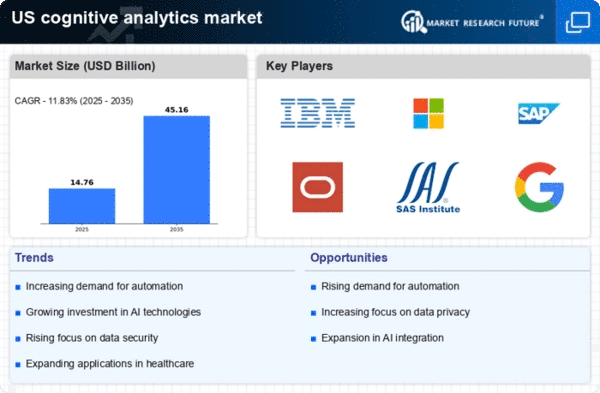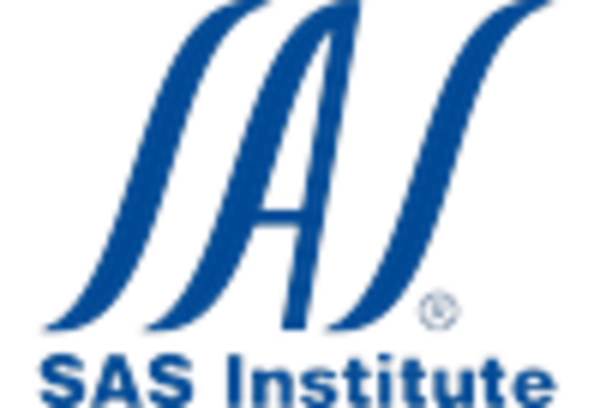Advancements in Cloud Computing
Advancements in cloud computing are significantly influencing the cognitive analytics market by providing scalable and flexible solutions for data storage and processing. The shift towards cloud-based analytics platforms allows organizations to access powerful cognitive analytics tools without the need for extensive on-premises infrastructure. This trend is particularly beneficial for small and medium-sized enterprises, which may lack the resources for large-scale data analytics. As cloud adoption continues to rise, the cognitive analytics market is projected to expand, with estimates suggesting a market size of $15 billion by 2027. The ability to leverage cloud technologies for cognitive analytics is likely to democratize access to advanced analytics capabilities across various industries.
Increased Focus on Customer Experience
In the cognitive analytics market, there is a growing emphasis on enhancing customer experience through personalized insights. Businesses are increasingly utilizing cognitive analytics to analyze customer behavior and preferences, allowing for tailored marketing strategies and improved service delivery. This focus on customer-centric approaches is expected to drive market growth, as companies recognize that understanding customer needs is crucial for retention and loyalty. The cognitive analytics market is projected to witness a growth rate of around 25% annually, as organizations invest in technologies that facilitate deeper customer insights and engagement. This trend underscores the importance of leveraging analytics to foster stronger customer relationships.
Integration of Machine Learning and AI
The integration of machine learning and artificial intelligence into cognitive analytics solutions is transforming the landscape of the cognitive analytics market. This integration enables systems to learn from data patterns and improve their predictive capabilities over time. As organizations seek to automate processes and enhance decision-making accuracy, the demand for cognitive analytics solutions that incorporate these technologies is expected to rise. The market is anticipated to reach a valuation of $20 billion by 2026, reflecting a growing recognition of the importance of intelligent analytics in driving business success. This trend indicates a shift towards more sophisticated analytical tools that can adapt to changing business environments.
Regulatory Compliance and Risk Management
The cognitive analytics market is also being propelled by the need for regulatory compliance and effective risk management. Organizations are increasingly required to adhere to stringent regulations, necessitating the use of advanced analytics to monitor compliance and mitigate risks. Cognitive analytics solutions provide the capability to analyze vast amounts of data in real-time, enabling businesses to identify potential compliance issues before they escalate. This proactive approach is likely to enhance the market's growth, as companies invest in analytics tools that support regulatory adherence. the cognitive analytics market is expected to grow by approximately 20% from 2025 to 2030, driven by the increasing importance of risk management in various sectors.
Rising Demand for Data-Driven Decision Making
The cognitive analytics market is experiencing a notable surge in demand as organizations increasingly prioritize data-driven decision making. This trend is largely fueled by the need for businesses to enhance operational efficiency and gain competitive advantages. According to recent estimates, the market is projected to grow at a CAGR of approximately 30% from 2025 to 2030. Companies are leveraging cognitive analytics to extract actionable insights from vast datasets, thereby improving strategic planning and resource allocation. As organizations recognize the value of data in shaping business strategies, the cognitive analytics market is likely to expand significantly, driven by investments in advanced analytics.
















